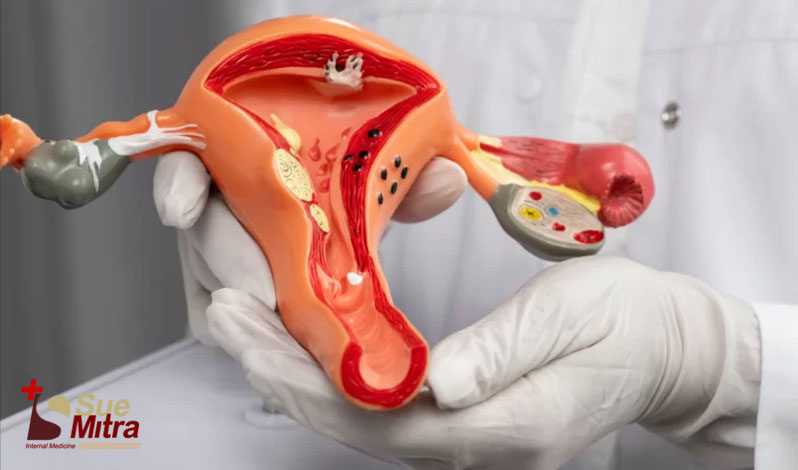
11, Apr 2024
Overview:
A common hormonal disorder that affects women of reproductive age is known as Polycystic Ovary Syndrome (PCOS). It is characterized by irregular menstrual cycles, high levels of male hormones (androgens), and small fluid-filled sacs (cysts) in the ovaries.
Here are some following ways to help demystify PCOS and better understand its impacts:
1. Symptoms:
PCOS can present with a variety of symptoms, including irregular periods, acne, excess facial and body hair, weight gain, and infertility. Not all women with PCOS will experience the same symptoms, and they can vary in severity.
2. Diagnosis:
PCOS is typically diagnosed based on symptoms, physical exam, blood tests to measure hormone levels, and imaging studies like ultrasound to check for ovarian cysts.
3. Treatment:
There is no cure for PCOS, but treatment aims to manage symptoms and reduce the risk of long-term complications. Options may include lifestyle modifications (such as diet and exercise), medication to regulate menstrual cycles and reduce androgen levels, and fertility treatments for those trying to conceive.
4. Impact on fertility:
Infertility in women is caused by PCOS. The hormonal imbalances and irregular ovulation associated with PCOS can make it difficult for women to conceive naturally.
5. Risks and complications:
Women with PCOS are at an increased risk of developing other health conditions, such as type 2 diabetes, high blood pressure, and heart disease. They may also have a higher risk of complications during pregnancy, such as gestational diabetes and preeclampsia.
6. Mental health:
PCOS can have a significant impact on a woman’s mental health and quality of life. The physical symptoms, hormonal imbalances, and fertility issues associated with PCOS can contribute to feelings of anxiety, depression, and low self-esteem.
7. Weight management:
Many women with PCOS struggle with weight management, as the hormonal imbalances associated with the condition can make it easier to gain weight and harder to lose it. Maintaining a healthy weight through diet and exercise is important for managing PCOS symptoms and reducing the risk of complications.
8. Support and resources:
Living with PCOS can be challenging, but there are many resources available to help women cope with the condition. Support groups, online forums, and healthcare providers specializing in PCOS can provide valuable information, support, and guidance.
9. Hormonal imbalances:
PCOS is characterized by a hormonal imbalance, with increased levels of androgens (male hormones) and insulin resistance being common in women with the condition. Managing these hormonal imbalances through medication and lifestyle changes can help alleviate symptoms and reduce the risk of complications.
10. Long-term management:
PCOS is a chronic condition that requires ongoing management to help control symptoms and reduce the risk of complications. Regular monitoring by a healthcare provider, lifestyle modifications, and medication as needed are key components of long-term management.
Conclusion:
By understanding the impacts of PCOS and taking proactive steps to manage the condition, women with PCOS can live healthy and fulfilling lives. It is important to talk to a healthcare provider if you suspect you may have PCOS or are experiencing symptoms related to the condition.
Dr. Sue Mitra and her staff strive to offer their patients the best care, advice and services available in the medical field with the goal to keep patient healthy & happy.

Dr. Sue Mitra is board certified in international medicine. She is seen here with a Cologuard, which is a noninvasive colon cancer screening test. (Photo by: Tim Shortt/Florida Today)